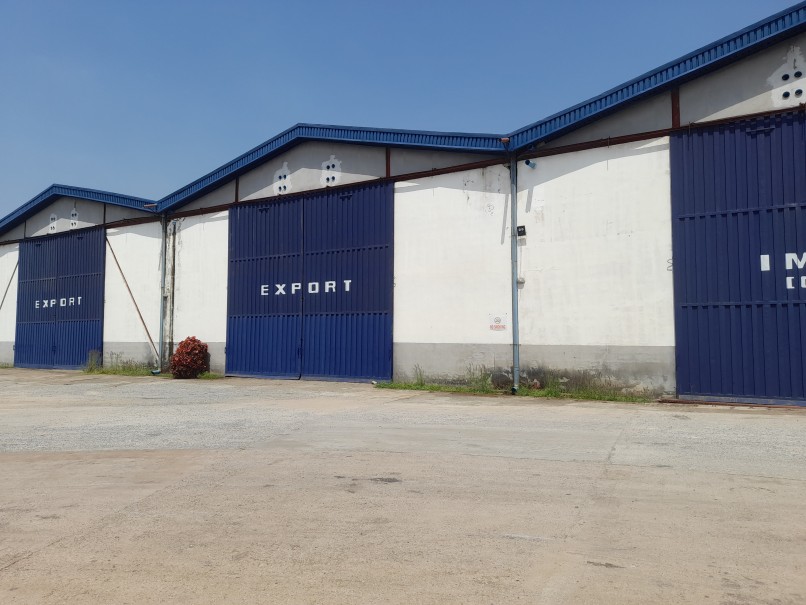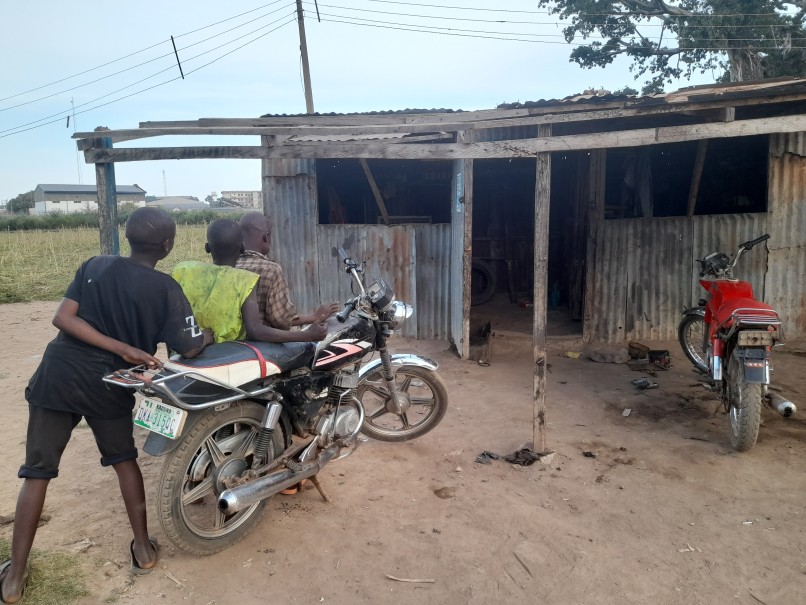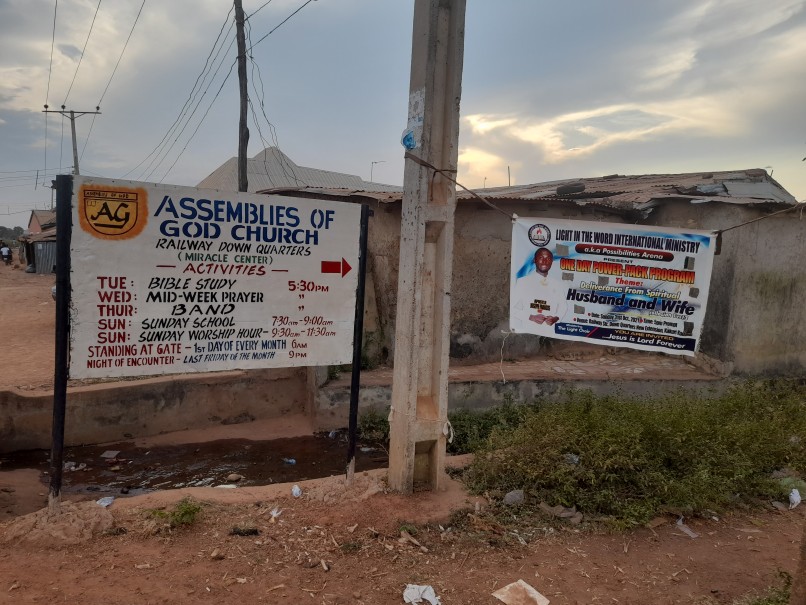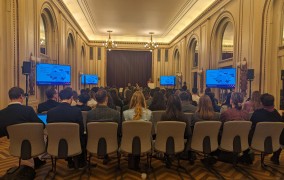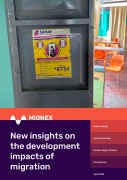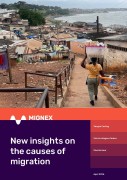MIGNEX Insight
Policy on paper vs. reality on the ground: lessons from data collection in Down Quarters, Nigeria
In 2019, we selected Down Quarters to study the livelihood expansion of the recently built dry port. What we saw instead, took us by surprise.
As part of MIGNEX’s inception phase, we selected 25 research areas across ten countries. Drawing on secondary data and conversations with experts we chose local areas with less than 100,000 inhabitants that allow us to study one or more of nine specific ‘developments’ of interest. In Nigeria, we opted for Down Quarters, a former railway workers quarter in the Kaduna metropolitan area that has expanded in recent decades. Alongside several factories, the recently opened Kaduna ‘dry port’ was seen as a means to bring major trade and jobs to the area. This inland port connected to the Lagos seaport by rail and road, is used for custom clearance, to decongest the Lagos port. With delays to data collection due to Covid-19, we finally reached Down Quarters more than three years after the dry port opened.
Unreached potential
Expecting to see a bustling port, we instead discovered an almost empty area, with low levels of activity. We were told, it receives an average of 15 containers per day. One of the main reasons is the poor state of the railways which the dry port is connected to: the train runs on an outdated locomotive engine and constantly breaks down, with days or weeks without service. Thus, the dry port mainly utilizes trailers to transport goods from Lagos to Kaduna. Invariably, this makes the turnaround time longer and the cost of operations more expensive. It appears that the dry port was built, without updating the associated infrastructure.
Employment was promised to Down Quarters resident, but because the dry port is privately owned it makes it hard to enforce recruitment rules. Only two Down Quarters residents have been formally employed by the port. Some youth we spoke with indicated that there is stiff competition for the small numbers of jobs offered by the port and because they do not have “god-fathers”, it is unlikely that they will ever gain employment there. As such, the dry port has not had any visible impacts on the community or expansion of livelihoods.
High levels of mobility
Not only is the dry port barely operating, but several of the large factories bordering Down Quarters have closed down in recent years. Nevertheless, we found Down Quarters to be a bustling place with both men and women working in different trades, running different kinds of business and working for a daily wage. Livelihoods are gendered in Down Quarters with women mostly working as hairdressers, tailors, petty traders of consumables, while men work in timber factories, transportation, farming, welding or mechanic workshops.
However, livelihoods for Down Quarters residents are informal, unpredictable and poorly renumerated. Earning daily wages, people make just enough money to get by. Informants told us that many families can’t afford to have three square meals a day. Mobility is high amongst men; they mostly migrate to major cities in Nigeria in search of better livelihoods. Because of the poor infrastructure and low-quality housing in Down Quarters, residents that do manage to access better paid livelihoods move to other parts of Kaduna metropolis.
Likewise, in-migration is high, with people seeking work in Kaduna on a seasonal or more temporary basis and benefitting from the low cost of living in and central location of Down Quarters. For instance, farmers from neighbouring states and countries move temporarily to Down Quarters after completing their harvest and pick up menial jobs there, until they return to their home towns during the next rainy season.
The high rate of in- and out- migration into the area by various ethnic groups makes it a culturally rich community. Walking around the area on a Saturday feels like a day for cultural celebration as many women attend their indigenous cultural meetings on that day. It would be apt to describe Down Quarters as a cocktail of Nigeria's cultural groups.
Peaceful coexistence
Perhaps most surprising was the peaceful and multicultural nature of Down Quarters. Kaduna state has witnessed a series of destructive ethno-religious conflicts in recent years and kidnappings and banditry are rife in many communities in the state. Even though there is a higher Muslim population in Down Quarters, there are also many churches of different denominations in the area. In Nigeria, this type of existence would typically be a recipe for communal clashes amongst the various groups. Yet over and over again we observed and were told about the strong bonds, shared festivities and unity amongst various ethnic groups.
Unlike the Kaduna metropolitan area and state, there appeared to be virtually no violence in Down Quarters and only one kidnapping in collective memory. Residents attributed this to the strong traditional institutions in place. The community is administered by the traditional leader also known as "Sarki", this position is separate from elected local government. It is an inherited position, with only members of a certain family eligible. The Sarki ensures the smooth running and peaceful co-existence amongst residence of Down Quarters, supported by a local Civilian Joint Task Force established by the community. The outfit is responsible for the maintenance of law and order in the community. Members of the Task Force are residents of the area, typically cutting across the different religious and ethnic groups in the community. Prior to enrolment, they are first screened by a security committee under the leadership of the traditional leader to ensure they are of good moral standing. The popular opinion amongst residents is that their leader is just, passionate and firm and thus he has earned their trust.
Down Quarters took all of us by surprise, two Kaduna based researchers and one based in London. Applying the WP4 research methodology allowed us the flexibility to observe and adapt to what we saw on the ground, while still collecting the data needed to make cross-research area comparison possible.
